Ronaldo’s redemption: Rewatching Brazil vs Germany in the 2002 World Cup final
The picture quality was poor and some of the football was even worse, writes Lawrence Ostlere, but Ronaldo’s brace expunged the nightmare of France ‘98

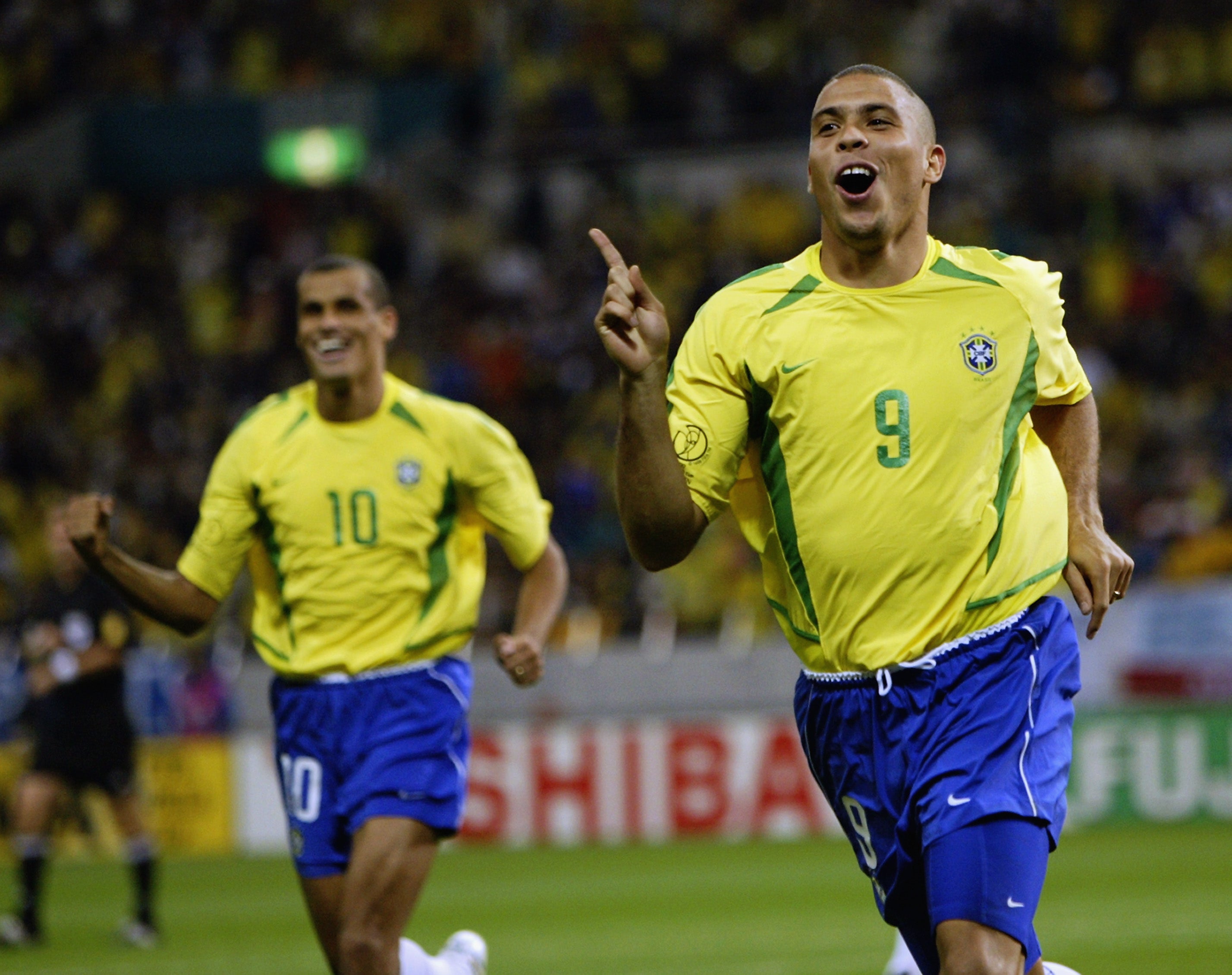
Watching back the 2002 World Cup final, once you’ve adjusted your eyes to the low-def visuals, two things jump out. The first is a reminder of the sheer indulgence of Brazil’s front three. Luiz Felipe Scolari built his team on a defence of Edmilson, Roque Junior and a young galloping Lucio; two midfielders in the wily Gilberto Silva and the tireless Kleberson; iconic wingback duo Cafu and Roberto Carlos; all of which allowed him to pick Ronaldinho flickering menacingly behind Rivaldo and Ronaldo in a fantasy-football attack.
Which makes the second thing even more notable: that Brazil weren’t fancied to win this World Cup, at all. Commentator Guy Mowbray (his lilting voice is just about the only thing in this broadcast which hasn’t aged) notes that Brazil have upset the odds to be here. Scolari took over with the team in disarray, on the brink of flunking qualification altogether, and he reinforced them with a steel spine which anchored their journey to the World Cup finals, and the final, and now Ronaldo has the chance to expunge the memory of France ‘98.
Even less was expected of a functional German team at the start of the tournament, though they might have come into the final as favourites had they not been hamstrung by the ruthless disciplinary rules of the era which meant their best player, Michael Ballack, was banned from the biggest match of his life because he picked up a yellow card in the semi-final.
The game is under way. The TV aesthetic was different in 2002: the grass not quite so pleasingly green, the whole package somehow less sparklingly bright. And there is also a notable difference between the style of these two sides: Ronaldo’s silver boots shimmer under the Yokohama lights, while Germany’s ‘short’ sleeves droop around their elbows like a detective’s coat.
There’s something about the football, too. The Germans never play out from the back. Ever. It seems an instruction that when Oliver Kahn has the ball, the gap between him and his nearest defender must be at least 50 metres, and he doesn’t so much kick it as hoof it upfield. Even the less able sides in Qatar tried to play their way up the pitch, but in 2002, in the ultimate match, Germany played with the directness of a Sam Allardyce side chasing a last-minute equaliser.
The entire energy and rhythm of the match is unrecognisable; there are very few passes between centre-backs, for instance, something you see constantly in the modern game, and there is a noticeable lack of technical ability from the Germans in particular. Everyone seems a little awkward on the ball, touches are heavier than you’d expect, movements less fluid. Miroslav Klose’s weaker left foot has a strictly balance-only brief; it barely touches the ball, so it’s left to the viewer to wonder if that is a Sunday League foot playing in a World Cup final.
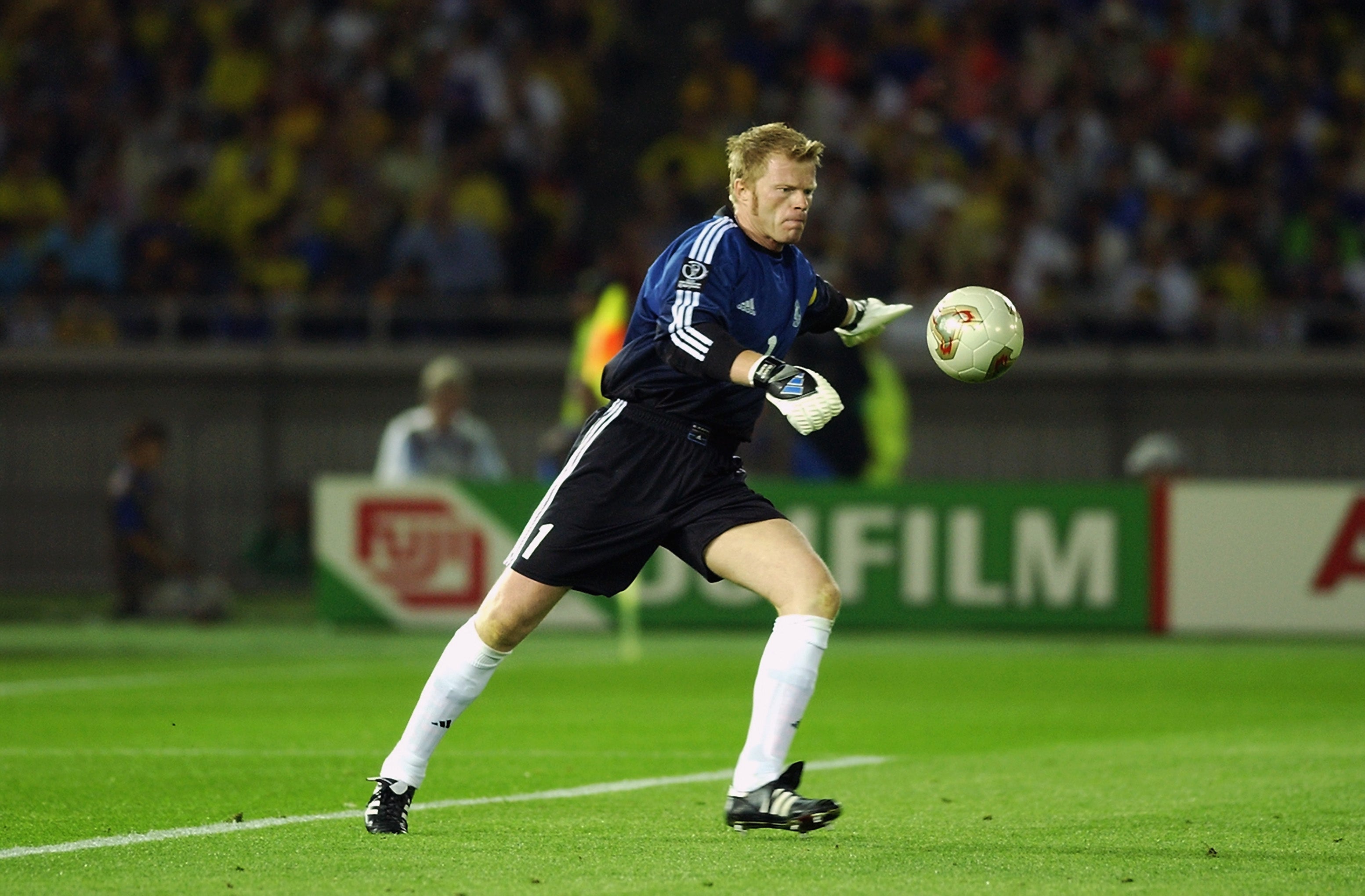
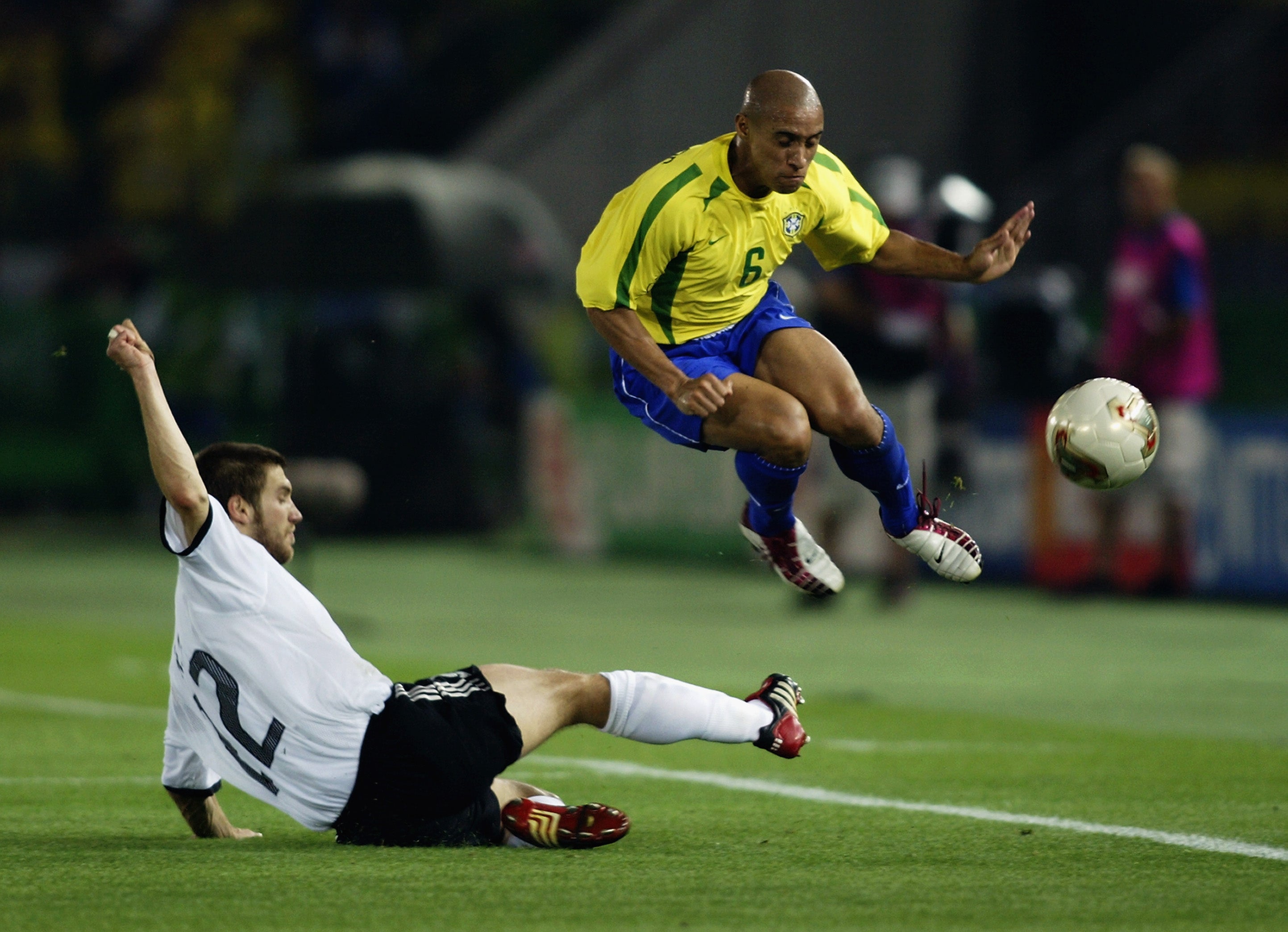
Brazil create the only two chances of a ponderous and disjointed first half-hour, both of which are squandered by Ronaldo, who’s slowly finding his groove. They ramp it up a little as they approach half-time and Ronaldo tests Kahn again, but it’s goalless at the break.
Rudi Voller must have given his boys a rollicking at half-time because they come out quickly in the second half. The man in for Ballack, Jens Jeremies, gets his head to a corner which looks goalbound but hits a Brazilian body. The pesky Oliver Neuville cracks a long-range free-kick straight out of the Roberto Carlos playbook and Brazilian keeper Marcos has to shift quickly to combat the swerve. “Germany come roaring into this second half,” says Mowbray, as a scowling Scolari watches on from the touchline.
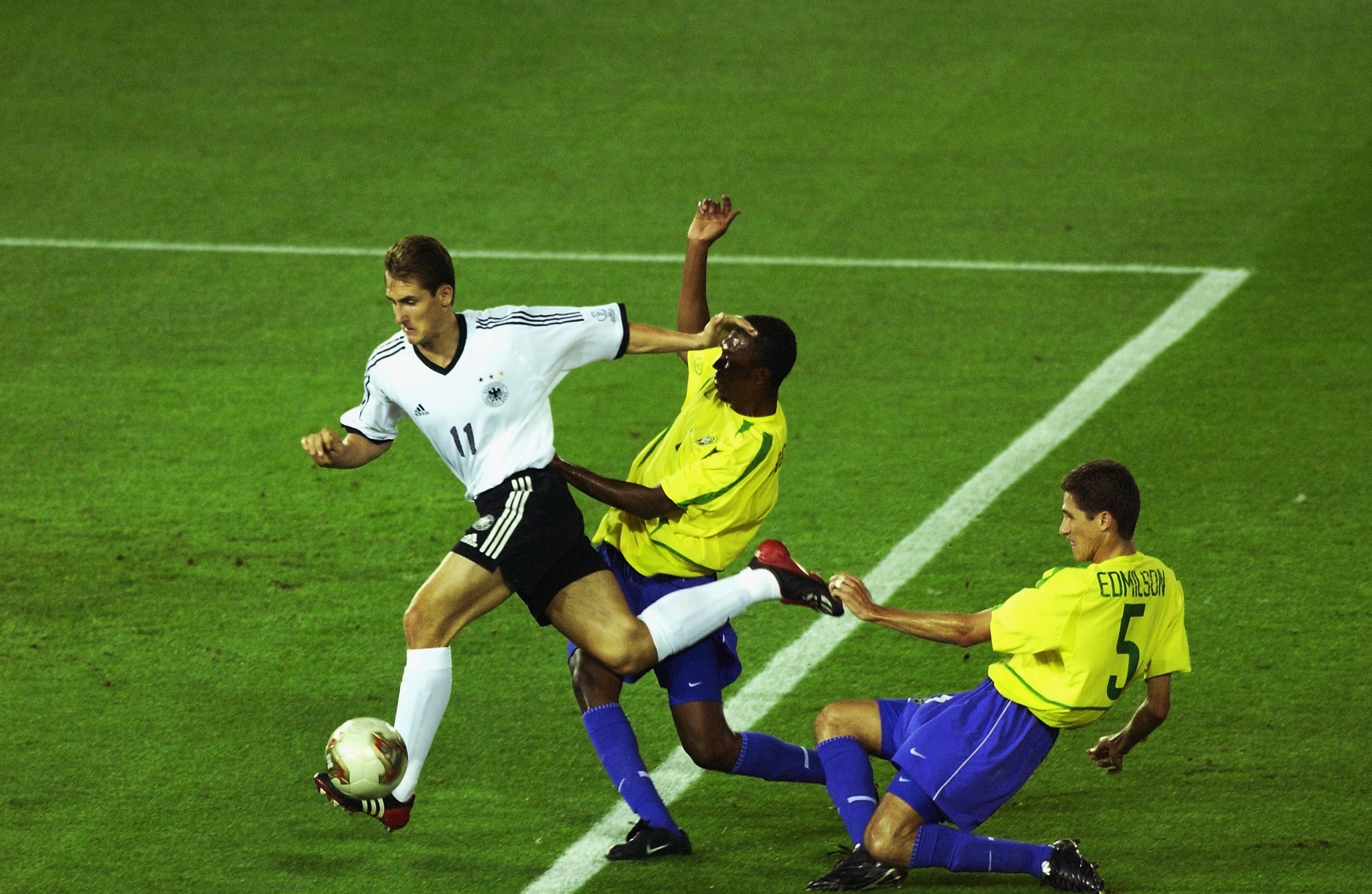
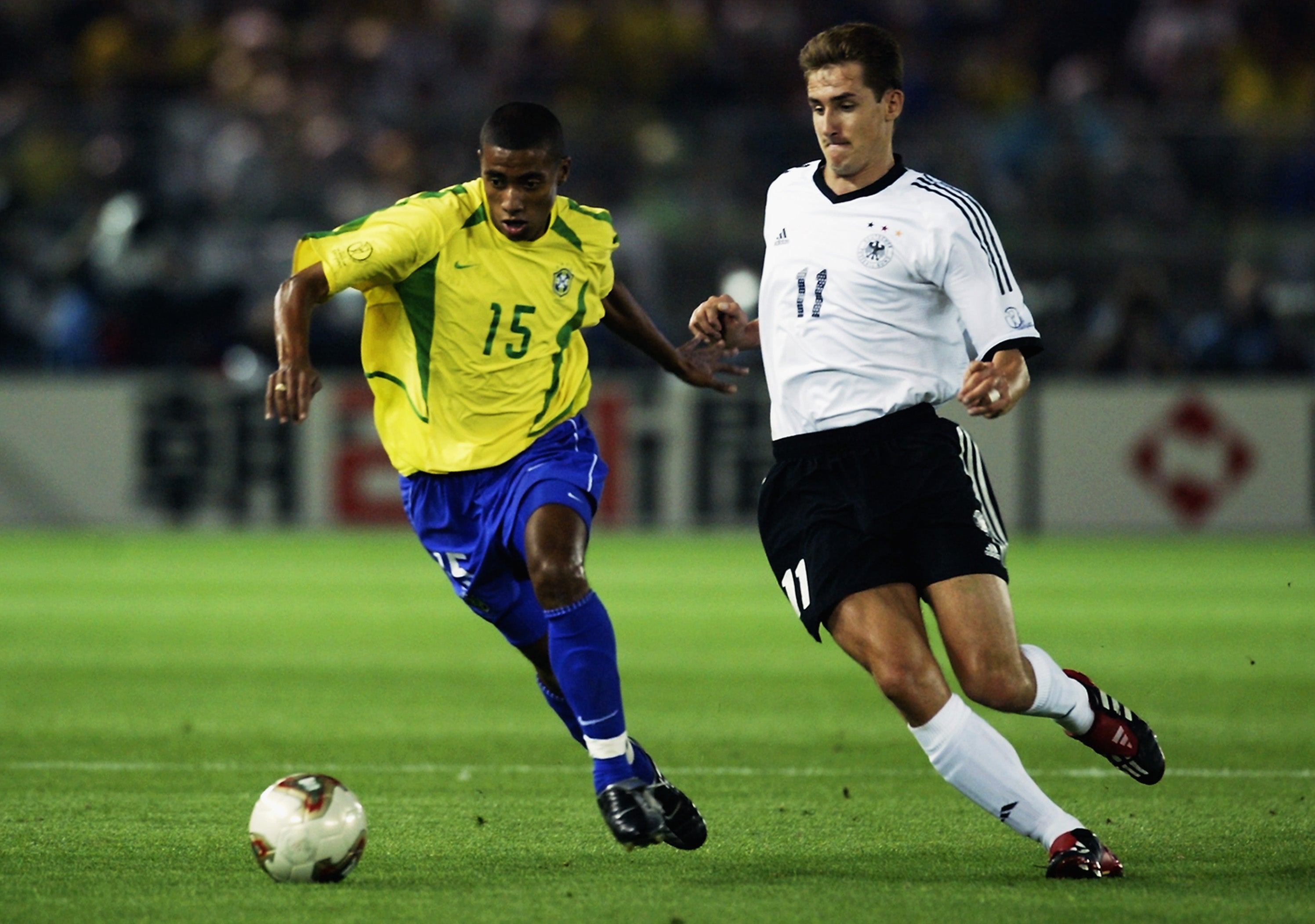
On the hour, Cafu and Jeremies collide in what is euphemistically described as a 50-50 challenge. In truth Cafu misses the ball and sends all of his studs into Jeremies’ tibia, enough to make you wince. It’s a straight red card in 2022, which VAR would step in and spot if the referee had missed, but for Pierluigi Collina it’s just a free-kick and nothing more. On commentary it’s noted that Cafu crunched Jeremies “just below the knee” like they’re discussing the weather.
Then, in the 67th minute, we find out why Germany don’t mess about at the back. On the edge of his box, centre-half Carsten Ramelow plays a short pass to Didi Hamann, who touches and turns with all the grace of an oil tanker. By the time Hamann’s sorted out his feet, Ronaldo is on him and makes the tackle. He finds Rivaldo who shoots, and Kahn fumbles, and there’s Ronaldo following up to stroke the ball into a half-empty net.
Mowbray’s voice wobbles with sympathy for the Germans - of all the ways to go behind, this wasn’t it. “Ronaldo, so sharp, so alive! And for Oliver Kahn it’s a huge mistake after a terrific tournament.” As the replay rolls, he adds: “The ball is wet, it slipped away from his grasp. And look at Ronaldo - he’s ready for it.”
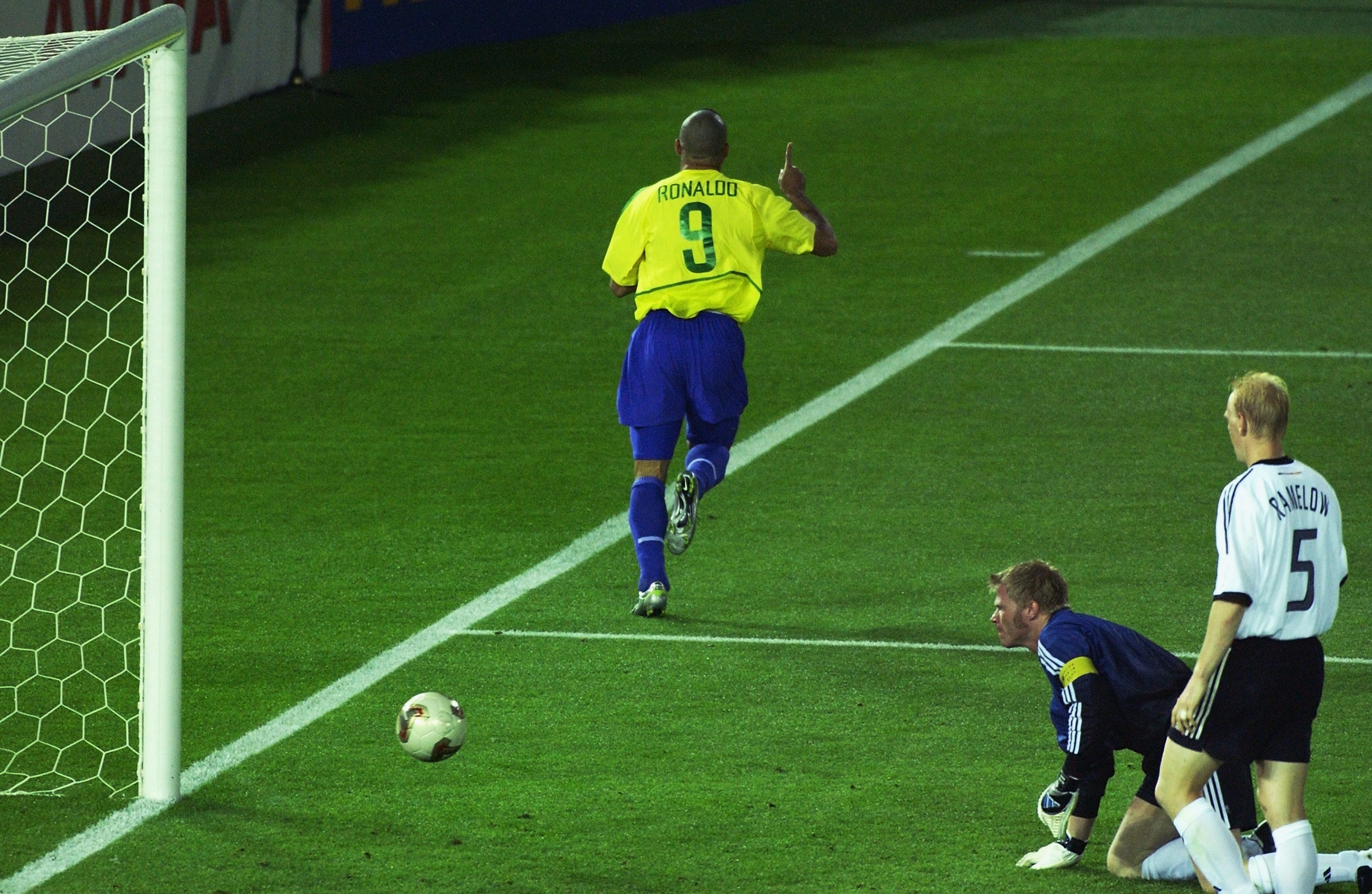

Up until the 79th minute, the commentary discourse is focused on Kahn’s only mistake of an otherwise infallible World Cup, and it is still the talking point as Brazil surge up the right wing with Kleberson. But then Ronaldo’s second goal changes the narrative. If the first goal was a little scrappy, the second is sublime - Klebersen’s pass into the box is dummied by Rivaldo and left for Ronaldo, who has a couple of yards of space, just enough to take a touch and guide the ball into the bottom-right corner. “Rivaldo’s left it, Ronaldo has it…!” hollars Mowbray, before the ball hits the net. “Full redemption for Ronaldo in the World Cup final! The boys from Brazil have started their celebrations. Magnificent.”
The last few minutes are by far the most fun to watch. Everyone’s exhausted and the game is stretched open, people running and charging and tackling and shooting, no midfield, players just lingering at either end like a school playground. Ronaldo has now been substituted, and on the touchline he weeps into the shoulder of a coach as the clock ticks down.
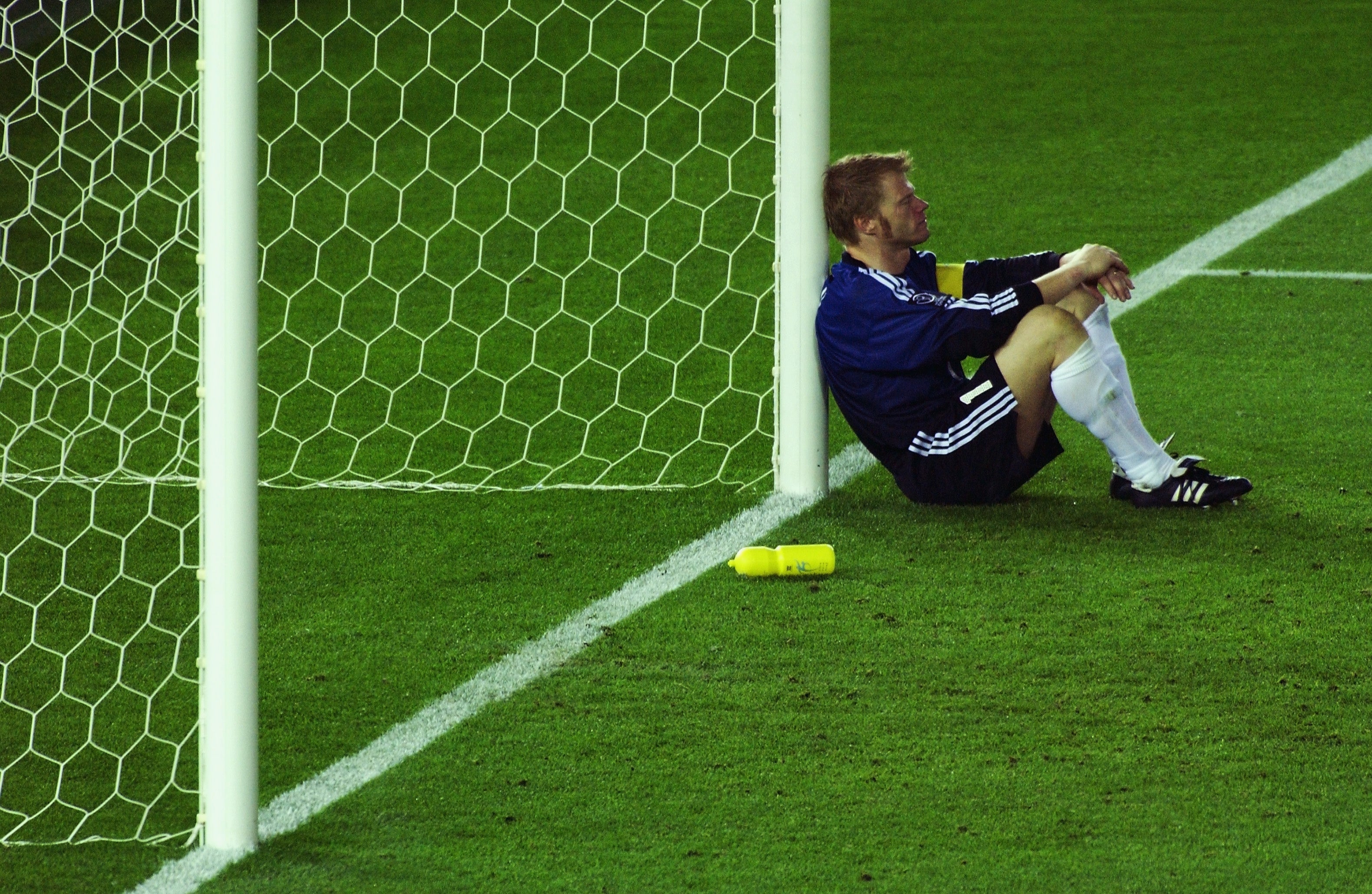
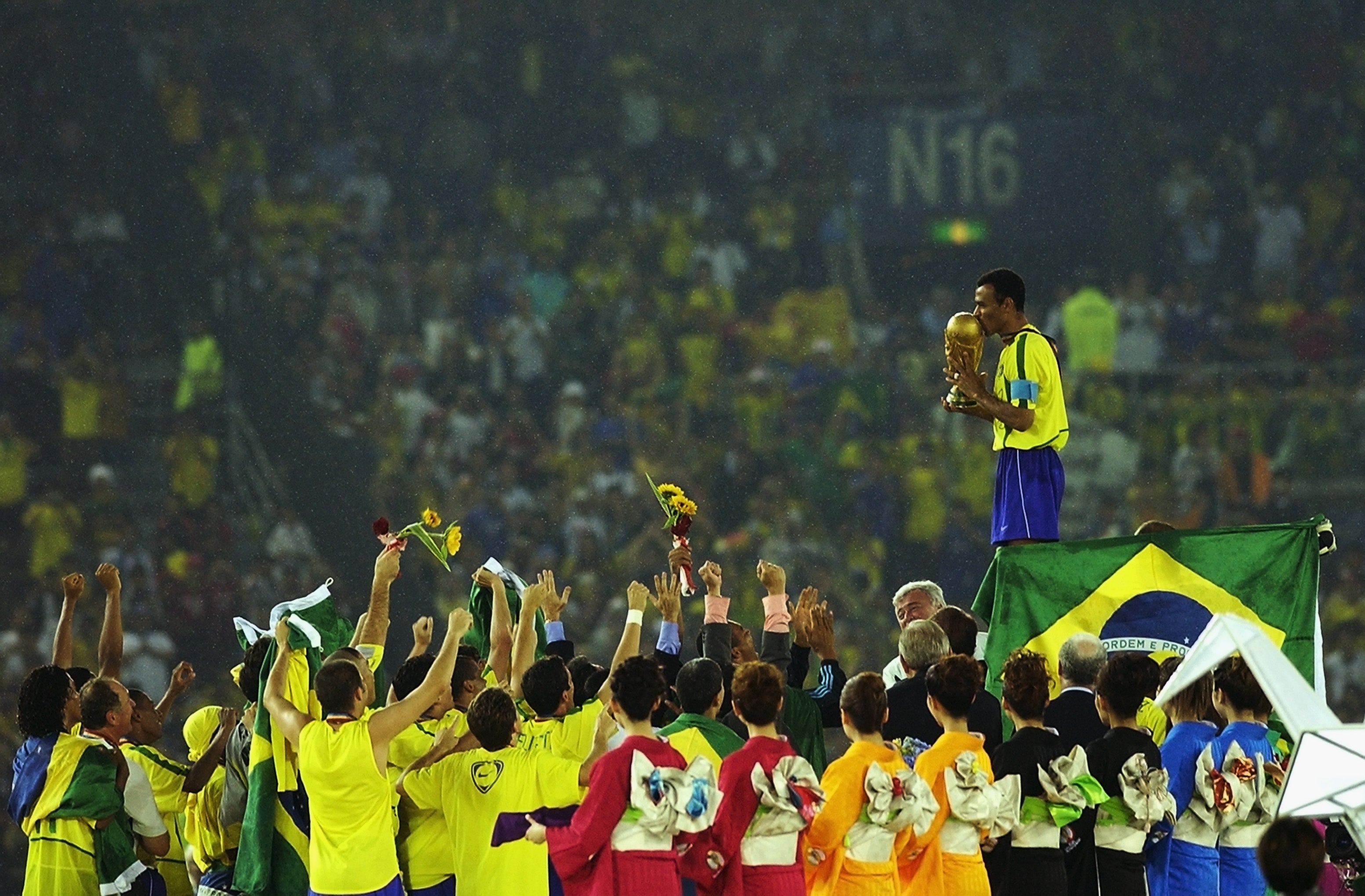
Ronaldinho is arguably just as important to Brazil’s tournament, but Ronaldo is the star goalscorer, the icon, and his seventh and eighth goals at Japan-Korea cement this as The Ronaldo World Cup, four years after the nightmare of 1998. “You don’t get two shots at a game like this, not in normal careers,” says Mowbray. “But his is not normal. He’s a superstar of the game.”
Join our commenting forum
Join thought-provoking conversations, follow other Independent readers and see their replies
Comments

Bookmark popover
Removed from bookmarks